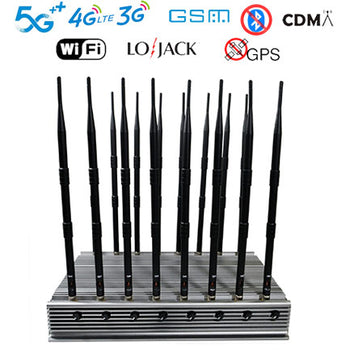I sympathize with the professor who used the cell phone jammer. Do you?
Having spent the week with five teenagers in the mountains of New Hampshire, I sympathize with the teacher from Florida who used a cell phone signal jammer to block student phones in class from paying attention.
The jammer had Professor Dean Liptak from Fivay High School in Pasco County suspended without pay for five days. It is illegal to use a jammer as the teacher learned after Verizon visited the school.
The jammer blocked communication with the Fivay High campus cell tower, and both the service provider and the school were concerned about the security issues. Liptak bought the jammer online and thought it was legal to use it.
According to WTSP-TV:
Liptak told the district he only thought the cell phone jammer would impact his class and force his students to put their phones down and be careful.
“Verizon had come to the school saying someone had a jamming device, because cell phone service was down in the area,” says Linda Cobbe, spokeswoman for the Pasco County School District.
Cobbe says Liptak's jamming device blocked communication with the cell tower on the Fivay High campus. "The consequences could have been dire, had he jammed the signal so that 911 calls could be made. It would affect an emergency at the school," Cobbe says.
Schools argue that they must allow students to bring cell phones to class because parents believe phones are necessary and promote safety.
But a new study from Britain indicates that phones in classrooms are compromising learning, especially among the lowest-achieving pupils.

Released in May, the study states:
There are debates in many countries about how schools should address the cell phone problem. Some argue for a total ban while others encourage the use of cell phones as a teaching tool in classrooms. This debate was recently seen with the Mayor of New York removing a 10-year ban on phones in schools in March 2019, stating that the abolition has the potential to reduce inequality (Sandoval et al, 2019).2 Despite the he heavy use of mobile phones by students and the heated debate on how to deal with them, the impact of mobile phones on the performance of secondary school students has not yet been studied academically. In this article, we estimate the effect of schools banning cellphones on student achievement.
We find that following a phone ban, student test scores improve by 6.41% of a standard deviation. Our results indicate that there are no significant gains in student performance if a ban is not widely observed. Furthermore, this effect is caused by the most disadvantaged and low-performing students. Students in the bottom quartile of past performance gain 14.23% of a standard deviation, while students in the top quartile are neither positively nor negatively affected by a phone ban. The results suggest that low-performing students are more likely to be distracted by the presence of mobile phones, while high-performing students can concentrate in class, regardless of mobile phone policy. Schools could significantly reduce the academic achievement gap by banning cell phone use in schools, and therefore by allowing phones in New York schools could unintentionally increase achievement inequities. We include several robustness checks such as an event study, placebo bans, a test for changes in student admissions, and a range of alternative outcome measures.
Schools that restrict access to cell phones subsequently experience improved test scores. However, these results do not rule out the possibility that mobile phones can be a useful learning tool if their use is properly structured.













